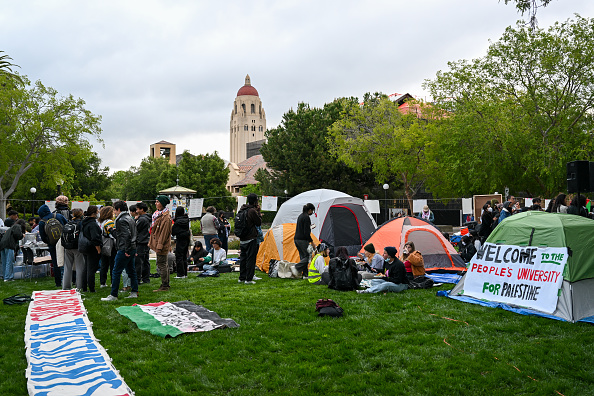Several of America’s top universities are embracing institutional neutrality in the wake of a turbulent year of campus protests.
The University of Pennsylvania, an Ivy League school, announced this week that it would no longer take institutional positions on external events, citing academic freedom concerns. “Although well-meaning, these institutional messages fundamentally compete with the free and unencumbered creation and expression of ideas by individuals,” the announcement read. “By quieting Penn’s institutional voice, we hope to amplify the expertise and voices within.”
Penn was the site of unruly protests over the war in Gaza throughout the 2023-24 school year and a related Congressional hearing which ultimately led to the university’s president stepping down. When asked by a member of Congress whether calls for the genocide of Jews violated campus rules, then-president Liz Magill said it was “context-dependent”, a comment eagerly picked up by the national press.
Having taken public stances on a number of hot-button issues in the years prior, the outbreak of war in Gaza put the University of Pennsylvania in a difficult position. In addition to student protests over the university’s perceived lack of support for Palestinians, donors revolted against the school for not being pro-Israel enough, resulting in massive financial damage.
Other top universities have found themselves in a similarly difficult position, prompting a wave of interest in institutional neutrality, which would allow universities to extricate themselves from contentious debates in the name of free speech and academic freedom. The new president of Yale, for instance, announced this week that the school was considering institutional neutrality, having appointed a committee to determine “when the university, or those speaking on its behalf, should comment on matters of public significance”.
The Board or Trustees at Stanford also reaffirmed the school’s policies discouraging institutional statements this week, months after the university updated its academic freedom policies. “When speaking for the institution, Stanford University leaders and administrators should not express an opinion on political and social controversies, unless these matters directly affect the mission of the university or implicate its legal obligations,” the updated Faculty Senate statement read.
Cornell and Harvard announced institutional neutrality policies this year as well, shunning outspoken statements on contentious issues. As the next semester begins and anti-Israel protesters announce planned action throughout the coming months, elite universities appear determined to handle rule-breaking demonstrations with disciplinary action while declining to comment on the content of those protests.
These new policies are by no means guaranteed to fix the cultural problems within academia, according to Neetu Arnold, a Research Fellow at the National Association of Scholars. “The current wave of support for institutional neutrality among universities isn’t particularly courageous — it’s a response to negative public sentiment, particularly among their more liberal stakeholders,” she told UnHerd.
Arnold added: “After years of pushing one-sided political views down everyone’s throats, which made campuses hotbeds for intolerant students and faculty, it’s not enough for university leadership to simply retreat from making statements. Universities must consciously create an academic environment where students and faculty value and respectfully engage with different views.”











Join the discussion
Join like minded readers that support our journalism by becoming a paid subscriber
To join the discussion in the comments, become a paid subscriber.
Join like minded readers that support our journalism, read unlimited articles and enjoy other subscriber-only benefits.
Subscribe